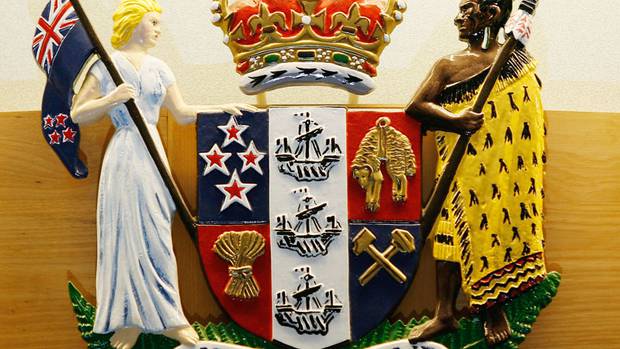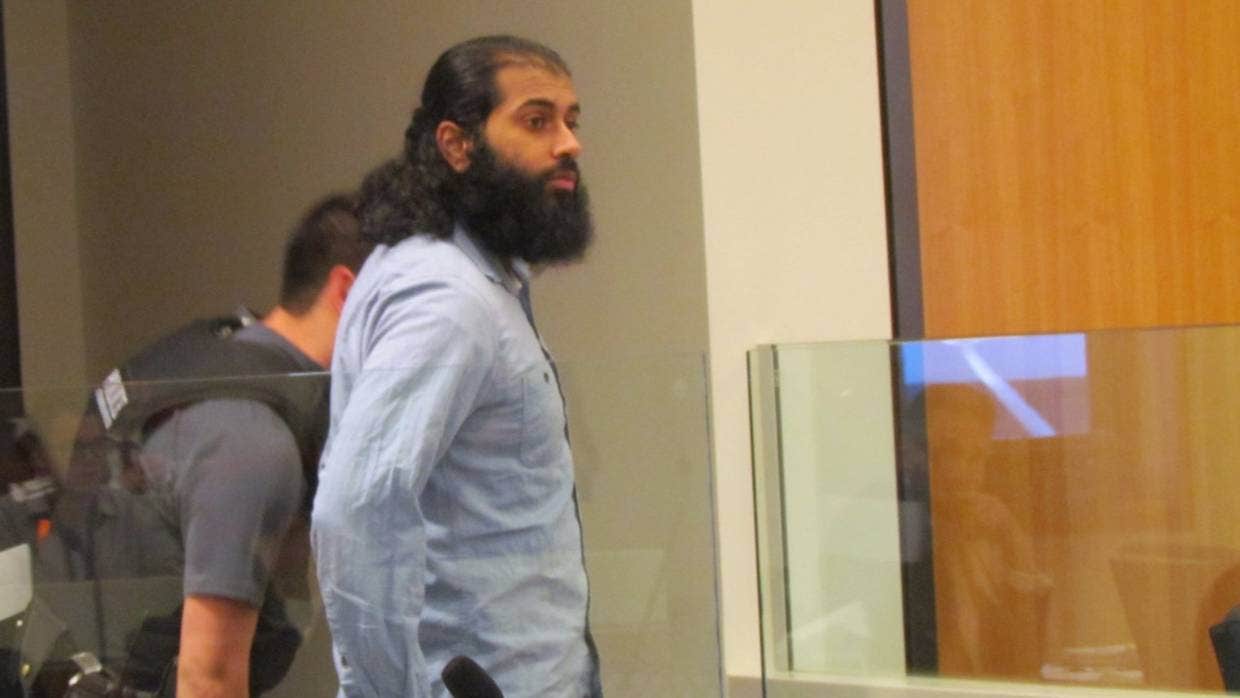Islam never sleeps. And this is normal Islam.

The first person in the country caught with graphic terrorist propaganda will be sentenced in an Auckland court this morning.
Less than five months ago, Niroshan Nawarajan, 27, walked into Auckland’s US consulate wearing a black Isis T-shirt and asked if the building was “bomb proof”.
He was arrested by police walking down Queen St shortly after the premises had gone into lockdown.
Following a scuffle with officers, during which he repeatedly shouted “Isis is here”, they took him to Auckland central station for processing.
While Nawarajan was being searched, police found a hard drive containing videos, magazines and documents widely classified as propaganda.
On the drive was also a typed letter “which tends to promote or support acts of torture or the infliction of extreme violence or cruelty”, court documents say.
Offences under the Films, Videos and Publications Classification Act are routinely seen in courts in relation to child pornography. Nawarajan will be the first sentenced over terrorism material.
He faces up to 10 years in jail after pleading guilty last month.
The horrifying nature of the videos is detailed in an agreed summary of facts, which was made available to the Herald yesterday.
All contain “graphic scenes of war violence”.
A video entitled Massacre of the Shias is essentially 22 minutes of executions.
One scene highlighted as particularly graphic depicted a man allowed to kneel on top of a hill to pray before being shot twice in the back of the head.
“The camera closes in on his face as he lies dying and focuses on the blood spurting out from his cheek,” court documents said.
Nawarajan also had 12 electronic issues of Dabiq magazine, a “glossy” Isis-produced publication, one edition of which was found to contain several photos of a Jordanian pilot being burned alive and shots of his charred remains.
Waikato University’s Professor Alexander Gillespie, who specialises in the law of armed conflict, was not shocked to hear of the case.
“This is a global problem. It exists in all other communities,” he said.
“The technology to reach people is exactly the same, it’s easily accessible and people need to be prepared to see more of it.”
Late last year, Prime Minister John Key said there were 40 people in the country considered so dangerous they were watched 24/7.
Dr Gillespie said the main trait shared by prospective extremists was a social and cultural alienation, often combined with a traumatic event in their past.
New Zealand was at an advantage because of the relatively small population and good community policing, as well as the fact there were no ethnic ghettos, he said.
On January 13, police were called about Nawarajan mumbling to himself outside the US consulate on Customs St East.
When he crossed the road to walk inside, he was heard to say “f***ing blow you up”.
Before police could get there he had inquired with staff in the building whether any Americans were inside and he was asked to leave after perusing the security area.
After Nawarajan left and the consulate was in lockdown, he was stopped by police.
When he refused to let a constable handcuff him, back-up was called.
The defendant aimed a kick at one of the officers and missed him with a punch before he was restrained.
After his arrest he told officers he hated police and would happily die for Allah.
“He also stated that he would kill for Allah, that he would shoot anyone, he would shoot police and that to kill him police would have to put a bullet in his head,” the summary said.
Federation of Islamic Associations of New Zealand president Hazim Arafeh said the case was “very isolated”.
“Our position is that we will the wider New Zealand society to stand with us in solidarity and say this is unacceptable,” he said.
Mr Arafeh described the fight against terrorism as a “vicious war” and said “to have someone distributing their material here is abhorrent”.
While Nawarajan will be the first sentenced for such offending, the second case is only a week away when a 26-year-old appears in Auckland District Court on similar charges.

